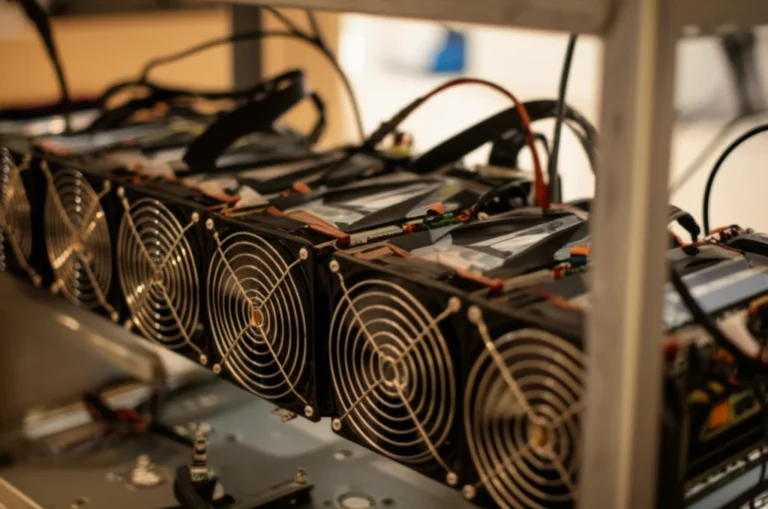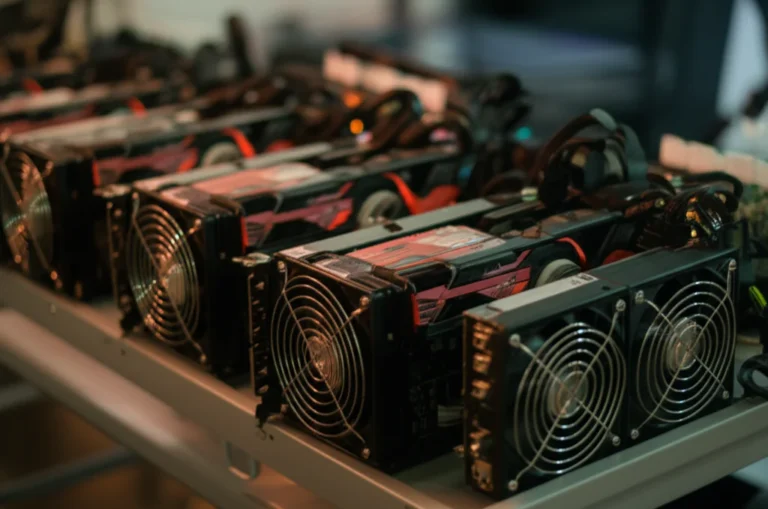Support our educational content for free when you purchase through links on our site. Learn more
How to Mine Bitcoin at Home for Free: 7 Smart Strategies! 💡 [2025]
Are you curious about how to mine Bitcoin at home for free? You’re not alone! With the rising popularity of cryptocurrencies, many are eager to dive into the world of Bitcoin mining without breaking the bank. Imagine turning your old computer into a money-making machine or joining forces with others to boost your chances of earning Bitcoin. But here’s the catch: while there are methods to minimize costs, the reality of free mining is more complex than it seems. In this article, we’ll explore seven effective strategies to help you get started on your Bitcoin mining journey, even if you’re on a tight budget.
Did you know that the Bitcoin network’s difficulty has surged over 200% in the past year alone? This means that while mining can be lucrative, it’s also incredibly competitive. So, how can you navigate this landscape and still come out ahead? Let’s dig in!
Key Takeaways
- Mining Bitcoin at home for free is a challenge: True free mining is nearly impossible, but there are ways to minimize costs.
- Join mining pools: Collaborating with others can increase your chances of earning Bitcoin significantly.
- Utilize existing hardware: You can start with your current computer, but be prepared for limited returns.
- Explore alternative methods: Consider faucets, airdrops, and browser-based mining for small earnings.
- Stay informed: The world of Bitcoin mining is ever-evolving; keeping up with trends is crucial for success.
Ready to take the plunge? 👉 Shop for mining hardware and software that suits your needs and start your journey today!
Table of Contents
Quick Tips and Facts
Understanding Bitcoin Mining: The Basics
How to Get Started with Bitcoin Mining at Home for Free
Top 7 Free Methods to Mine Bitcoin at Home
The Role of Mining Pools in Home Mining
Choosing the Right Hardware for Home Mining
Software Solutions for Free Bitcoin Mining
Using Renewable Energy Sources for Cost-Free Mining
Common Mistakes to Avoid When Mining Bitcoin at Home
Maximizing Your Bitcoin Mining Efficiency
The Future of Home Bitcoin Mining
Conclusion
Recommended Links
FAQ
Reference Links
Quick Tips and Facts
- Mining Bitcoin at home for free is essentially impossible. ⛏️ You’ll need to invest in mining hardware or find alternative methods like cloud mining, which often involve costs.
- The Bitcoin network’s difficulty is extremely high. 📈 This means you’ll need powerful hardware to compete with large mining farms.
- Free methods often yield minimal returns. 🐢 Don’t expect to get rich quickly. It might take a long time to earn even a small fraction of Bitcoin.
- Be wary of scams. ⚠️ If something sounds too good to be true, it probably is. Research thoroughly before investing time or money.
Understanding Bitcoin Mining: The Basics
Before diving into the “free” aspect, let’s understand how Bitcoin mining works. In essence, How to Mine Cryptocurrency on PC: 10 Essential Tips for Success 🚀 2025 involves solving complex mathematical problems to validate and add transactions to the Bitcoin blockchain. This process requires significant computing power, and miners compete to solve these problems first, earning Bitcoin rewards in the process.
The Role of Hash Rate
The speed at which your hardware can solve these problems is measured in hash rate. The higher your hash rate, the more likely you are to find a block and earn Bitcoin. However, with more miners joining the network, the difficulty of mining increases, requiring even higher hash rates to stay competitive.
How to Get Started with Bitcoin Mining at Home for Free
While truly “free” Bitcoin mining is a myth, there are ways to minimize your costs and potentially earn some Bitcoin without a significant upfront investment. Here’s a breakdown of the most common approaches:
Top 7 Free Methods to Mine Bitcoin at Home
- Using Your Existing Computer: You can use your current CPU or GPU to mine Bitcoin. However, don’t expect much in terms of earnings. The hash rate of a standard computer is unlikely to generate significant profits.
- Joining a Mining Pool: By joining a Crypto Coin Mining pool, you combine your computing power with others, increasing your chances of earning Bitcoin. However, pools often charge fees and payouts might be small.
- Leveraging Free Cloud Mining Services: Some platforms offer free cloud mining plans, allowing you to mine Bitcoin without any hardware. However, these plans often come with limitations and might not be profitable in the long run.
- Participating in Faucets and Airdrops: Bitcoin faucets and airdrops distribute small amounts of Bitcoin for completing tasks or as promotional giveaways. While not technically mining, these methods can earn you some Bitcoin without investing.
- Browser-Based Mining: Some websites offer browser-based mining, where your computer’s resources are used to mine Bitcoin while you browse. However, this method often yields negligible returns and can slow down your computer.
- Utilizing Unused Devices: If you have old smartphones, laptops, or other devices lying around, you can try using them for mining. However, the earnings might be minimal due to their limited processing power.
- Participating in Bounty Programs: Some cryptocurrency projects offer Bitcoin rewards for completing tasks like bug hunting, content creation, or social media promotion.
The Role of Mining Pools in Home Mining
Mining pools play a crucial role in home mining, especially when using less powerful hardware. By joining a pool, you contribute your hash rate to a collective effort, increasing the chances of finding a block and earning Bitcoin. The rewards are then distributed among the pool members based on their contributed hash rate.
Choosing the Right Hardware for Home Mining
If you’re serious about mining Bitcoin at home, investing in specialized hardware is essential. ASIC miners are specifically designed for Bitcoin mining and offer significantly higher hash rates compared to CPUs or GPUs. However, they can be expensive and consume a lot of electricity.
Software Solutions for Free Bitcoin Mining
Several software programs can help you mine Bitcoin at home. Some popular options include:
- NiceHash: A user-friendly platform that allows you to connect your mining hardware and start earning Bitcoin.
- CGMiner: A command-line based mining software suitable for experienced users.
- BFGMiner: Another popular command-line mining software with advanced features.
Using Renewable Energy Sources for Cost-Free Mining
One way to potentially achieve “free” Bitcoin mining is by using renewable energy sources like solar panels or wind turbines. By generating your own electricity, you can offset the costs associated with mining. However, the initial investment in renewable energy systems can be substantial.
Common Mistakes to Avoid When Mining Bitcoin at Home
- Underestimating Electricity Costs: Mining Bitcoin consumes a lot of power. Make sure to factor in your electricity rates before starting.
- Using Inefficient Hardware: Using outdated or inefficient hardware can lead to minimal earnings and wasted electricity.
- Falling for Scams: Be cautious of cloud mining scams or promises of unrealistic returns.
- Neglecting Cooling and Ventilation: Mining generates heat. Ensure proper cooling and ventilation to prevent hardware damage.
Maximizing Your Bitcoin Mining Efficiency
- Optimize Your Mining Software: Configure your mining software for optimal performance based on your hardware and network conditions.
- Join a Reputable Mining Pool: Choose a pool with low fees, a fair reward system, and a good track record.
- Monitor Your Hardware: Keep an eye on your hardware’s temperature, hash rate, and overall performance.
- Stay Updated: The world of Bitcoin mining is constantly evolving. Stay informed about the latest hardware, software, and mining strategies.
The Future of Home Bitcoin Mining
The future of home Bitcoin mining is uncertain. As the network difficulty increases and mining becomes more competitive, it might become increasingly challenging for individual miners to profit. However, advancements in mining technology and the emergence of new cryptocurrencies might create new opportunities for home miners.
Conclusion
In summary, mining Bitcoin at home for free is more of a dream than a reality. While there are methods to minimize costs, such as using existing hardware or participating in mining pools, the competition and energy costs often outweigh the potential rewards. Investing in specialized hardware and considering renewable energy sources may provide better outcomes, but it’s essential to approach this venture with realistic expectations.
Positives and Negatives of Home Bitcoin Mining
Positives:
- Potential to earn Bitcoin without significant upfront investment.
- Flexibility to mine at your own pace and convenience.
- Opportunity to learn about cryptocurrency and blockchain technology.
Negatives:
- High competition from large mining farms.
- Electricity costs can quickly add up, impacting profitability.
- Limited returns for those using basic hardware.
Overall, if you’re passionate about cryptocurrency and willing to invest time and possibly some money, home mining can be an interesting hobby. However, be prepared for the reality that it may not lead to significant profits.
Recommended Links
- 👉 Shop NiceHash on: Amazon | NiceHash Official Website
- 👉 Shop CGMiner on: GitHub
- 👉 Shop BFGMiner on: GitHub
- Books on Bitcoin Mining:
FAQ
Is it really possible to mine Bitcoin at home for free?
No, mining Bitcoin at home for free is not feasible. While you can use existing hardware or join mining pools, there are always associated costs, especially electricity. Even the most efficient setups require some investment.
Read more about “How to Mine Cryptocurrency on PC: 10 Essential Tips for Success 🚀 …”
What are the hardware requirements for mining Bitcoin at home?
To mine Bitcoin effectively, you need:
- ASIC miners for optimal performance.
- A reliable power supply unit (PSU).
- Sufficient cooling systems to manage heat.
- A stable internet connection.
Read more about “How to Set Up a Crypto Miner at Home: 15 Essential Steps for Success … 🚀”
What software do I need to mine Bitcoin at home?
Popular mining software includes:
- NiceHash for beginners.
- CGMiner for advanced users.
- BFGMiner for those needing more control.
Read more about “What’s the Best Crypto to Mine at Home? 10 Top Picks for 2025! 🚀”
How much electricity does Bitcoin mining consume at home?
Electricity consumption varies greatly based on hardware. ASIC miners can consume anywhere from 500W to over 3000W. It’s crucial to calculate your local electricity rates to determine profitability.
Is Bitcoin mining at home profitable?
Profitability depends on several factors:
- The cost of electricity.
- The efficiency of your mining hardware.
- Current Bitcoin prices and network difficulty.
Read more about “Can I Mine My Own Cryptocurrency? 12 Essential Insights to Get You Started! 🚀”
What are Bitcoin mining pools and how do they work?
Mining pools are groups of miners who combine their computing power to increase the chances of earning Bitcoin. Rewards are distributed based on each member’s contribution to the pool’s total hash rate.
Read more about “The Ultimate Bitcoin Mining Rig: 10 Essential Components You Need to Know … ⛏️”
Are there any legal considerations for mining Bitcoin at home?
Yes, legal considerations include:
- Compliance with local laws regarding cryptocurrency.
- Potential zoning regulations if mining equipment generates excessive noise or heat.
- Tax implications on any earnings from mining.
Read more about “Computer for Crypto Mining: Unleash the Power of Your Machine …”
What are the risks associated with mining Bitcoin at home?
Risks include:
- High electricity costs that can exceed earnings.
- Hardware failure due to overheating or wear and tear.
- Market volatility affecting Bitcoin prices.
Read more about “… How Much Is a Homemade Crypto Mining Cost?”
Are there alternative cryptocurrencies that are easier to mine at home?
Yes, some alternative cryptocurrencies (altcoins) are easier to mine at home, such as:
- Litecoin (LTC)
- Monero (XMR)
- Ethereum Classic (ETC)
These often require less powerful hardware and can be more profitable for home miners.
Read more about “Can I Mine Bitcoin on My Own? 10 Essential Insights for 2024! 🚀”






